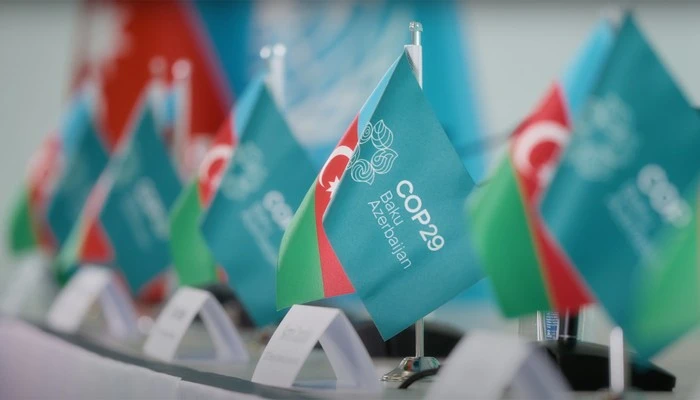At COP29 in Baku, rich countries pledged $300bn annually by 2035 to help poorer nations combat climate change. This amount, a marked increase from the $100bn commitment made earlier, is part of a broader $1.3 trillion annual target.
However, only $300bn will be provided as grants and low-interest loans, leaving the rest to be mobilized through private investments and proposed levies on fossil fuels and frequent flyers.
Criticism from Developing Nations
The pledge has been widely criticized by developing nations as inadequate. Mohamed Adow, director of Power Shift Africa, called the funding “vague and unaccountable.” He emphasized the need for clear, grant-based climate finance that the deal fails to provide.
India’s delegate Chandni Raina labeled the pledge a “paltry sum,” while Nigeria’s envoy Nkiruka Maduekwe called it “an insult.” Sierra Leone’s Environment Minister Jiwoh Abdulai expressed disappointment at the lack of goodwill from wealthy nations.
Fossil Fuel Transition Sidestepped
Unlike COP28, where 200 countries agreed on the need to phase down fossil fuels, COP29 avoided explicitly repeating this call. Instead, the agreement referenced the Dubai declaration.
Bushra Bibi Faces Fresh Cases Over Remarks Against Saudi Arabia
Azerbaijan’s President Ilham Aliyev, in his opening remarks, referred to fossil fuel resources as a “gift from God,” highlighting the divergence in priorities.
New Carbon Credit Trading Rules Approved
COP29 also approved new rules for carbon credit trading under Article 6 of the Paris Agreement. These allow wealthy nations to buy offsets from developing countries, funding initiatives like reforestation and clean energy transitions.
While proponents argue this could bring investment to developing countries, critics warn it may enable polluters to delay meaningful emissions reductions. Previous scandals in unregulated carbon markets raise concerns about accountability and integrity.
Disagreements Within Developing Nations
Divisions emerged within the developing world during negotiations. The Least Developed Countries (LDCs) bloc requested $220bn annually, while the Alliance of Small Island States (AOSIS) sought $39bn. Other developing nations opposed these demands, and neither figure appeared in the final agreement.
Instead, the deal calls for tripling other public funds by 2030, leaving specific allocations unresolved.
Reactions from Global Leaders
EU Commission President Ursula von der Leyen praised the agreement, calling it a “new era for climate cooperation.” US President Joe Biden described it as a “historic outcome,” and EU climate envoy Wopke Hoekstra said it marked a turning point for climate finance.
However, the contrasting views from developing nations underline deep dissatisfaction.
Follow Day News on Google News, Instagram, YouTube, Facebook, Whats App, and TikTok for latest updates
